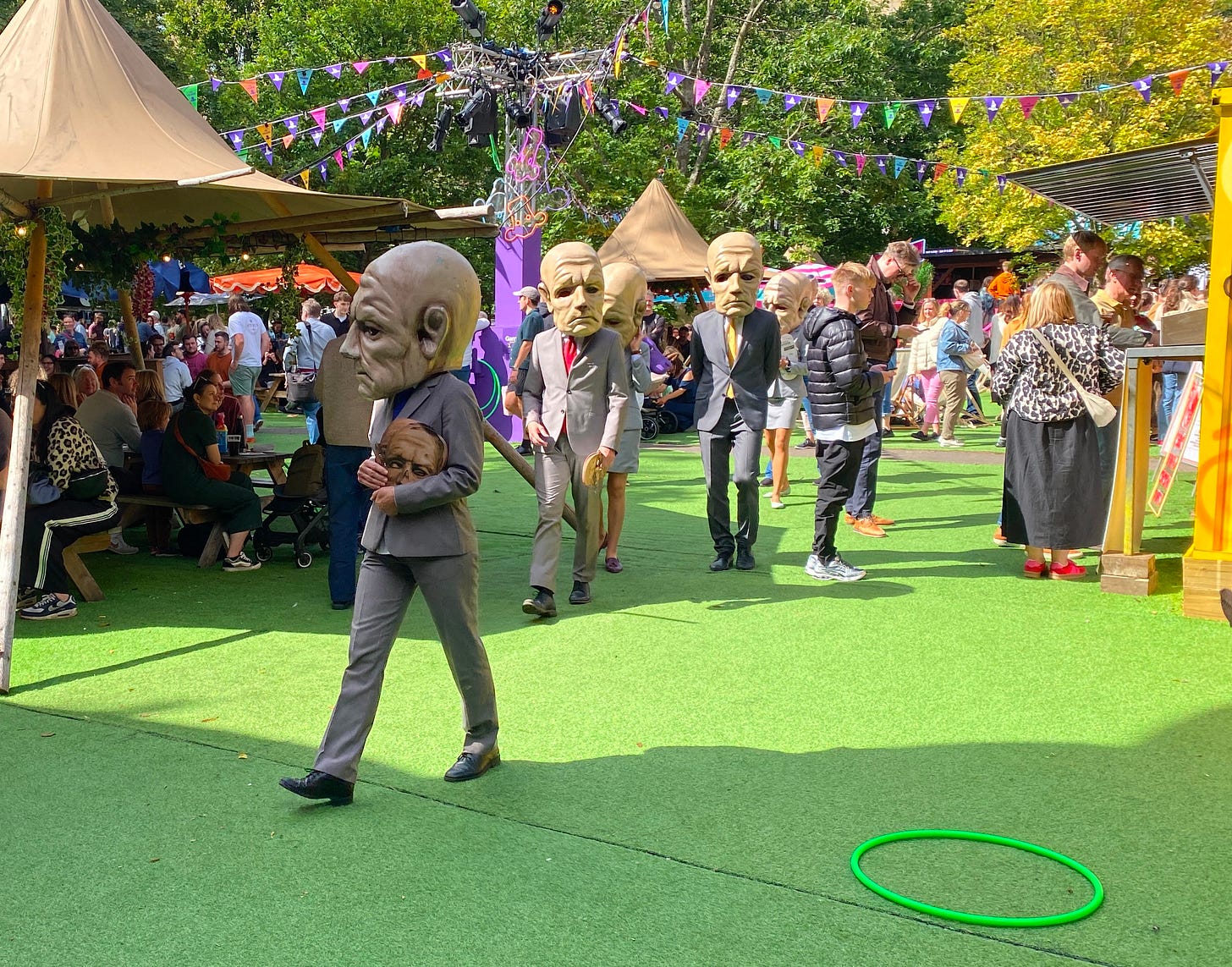Artists protest as the Fringe partners with generative AI specialist
Will Quinn on the Fringe's tech partner selling software to performers 'which writes plays and jokes'
"It blew my mind to read about an American CEO coming over to sell his wares at the Festival," says Dr Pip Thornton, a Chancellor's Fellow at the School of Geosciences at the University of Edinburgh.
Before her academic career, Thornton served for 15 years as a police officer with the Metropolitan Police. Her transition from public service to academia has been defined by an ongoing critical inquiry into the politics and economics of language in digital spaces. After leaving the force, she embarked on a PhD exploring the intersections of cybersecurity, geopolitics, and digital culture, a trajectory that led her to investigate how tech platforms commodify language.
Thornton has since emerged as a prominent, local critic of AI deployment in cultural spaces, particularly when those tools are introduced without transparency or consent. Her reaction to the presence of Anthropic at last year’s Edinburgh Festival Fringe was one of bemusement. Earlier this year, the Fringe Society announced Anthropic’s return as the ‘Official Education Partner’ of the Fringe. Dr Thornton has concerns, and she isn’t alone.
Claude AI at the Fringe: Closed Doors and Unanswered Questions
Her curiosity was sparked by the unexpected involvement of the American AI firm, best known for its generative AI tool Claude, in the world’s largest arts festival. “I saw adverts and tried to find out more on social media, but no one seemed to care,” she recalls. Anthropic hosted a set of workshops aimed at artists, media professionals and academics. Thornton registered for all three, but was denied entry to two based on her academic affiliation. “I said, I’m also a Fringe performer, so why not that one as well?” she says. “The answer was ‘No!’ By that time, they’d looked me up and made their decision.”
Undeterred, she attended the performers’ workshop unofficially, standing at the back rather than taking a seat. What she witnessed, she says, was troubling: “It was particularly bizarre to be in a room with performers who were being sold a ‘tool to make their lives easier,’ which was then shown writing a play!”
Thornton describes the session as a tightly controlled presentation. Despite initial claims that questions would be welcomed, attempts to raise concerns were met with deflection. “When someone asked if Claude could be used as a citation tool, the presenter said, ‘No, because it’s not connected to the internet.’ When they followed up, asking, ‘How is this useful then?’ they just ignored the question and carried on.”




